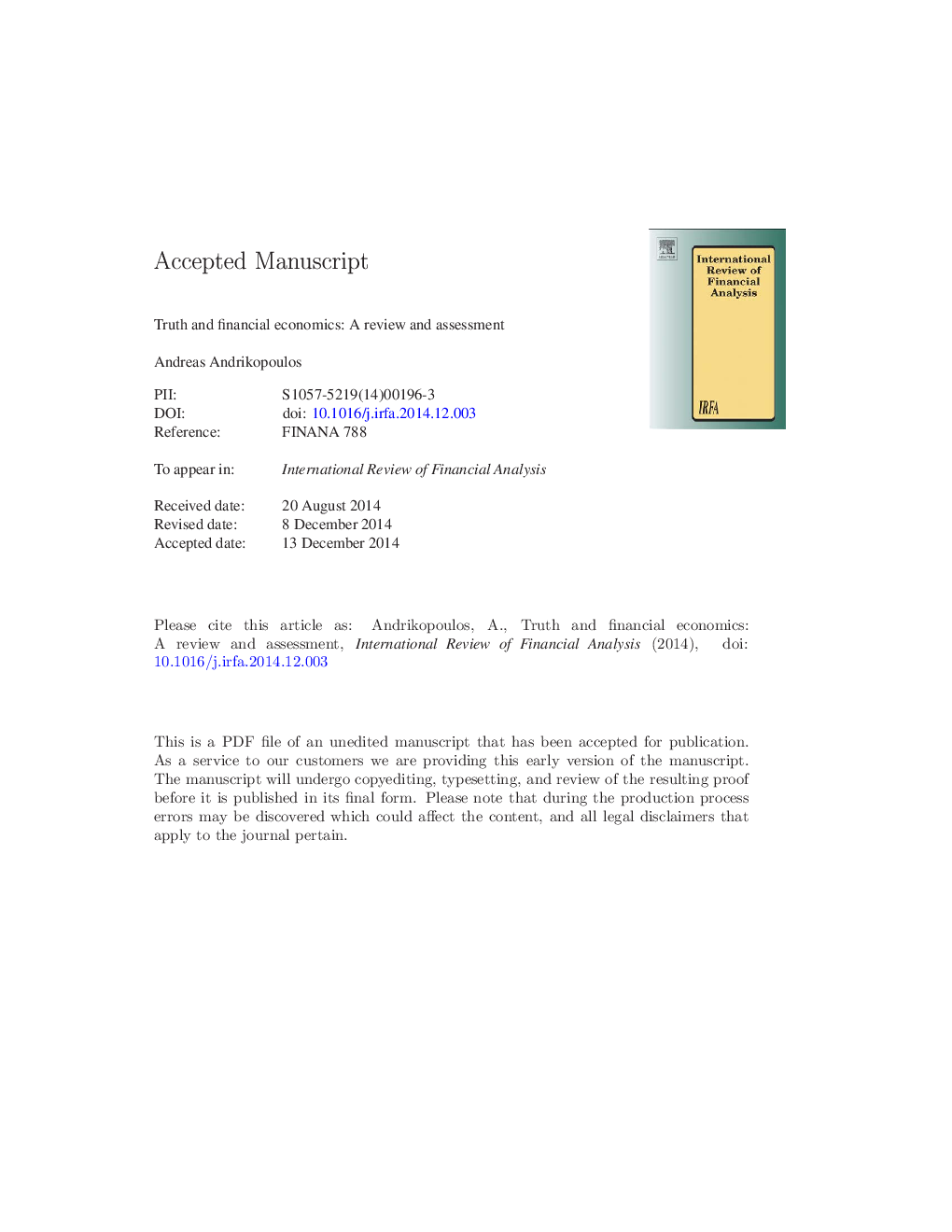| Article ID | Journal | Published Year | Pages | File Type |
|---|---|---|---|---|
| 5084825 | International Review of Financial Analysis | 2015 | 33 Pages |
Abstract
Truth is important in the theory and practice of finance. Asset valuation is based on models that calculate true asset values as distinct from observed market prices. In financial economics, truth is essential in theoretical and empirical work in market microstructure, corporate finance and asset pricing. The versatile use of “true values” in finance is reviewed and assessed in the context of those philosophical theories of truth which are most relevant to asset pricing debates: the correspondence theory of truth, the coherence theory as well as the pragmatist approach to truth. We find that truth, in asset valuation, is not external to the context of inquiry; it is always model-dependent. This finding motivates the argument that (the truth of propositions about a) theory-independent reality should be explored on the level of structures that trigger market outcomes, rather than the level of asset values. Our findings on the context-dependent character of true asset values also necessitate the exploration of the structure of scientific inquiry in which some contexts prevail over others and some valuation models are widely adopted as measures of truth.
Related Topics
Social Sciences and Humanities
Economics, Econometrics and Finance
Economics and Econometrics
Authors
Andreas Andrikopoulos,
